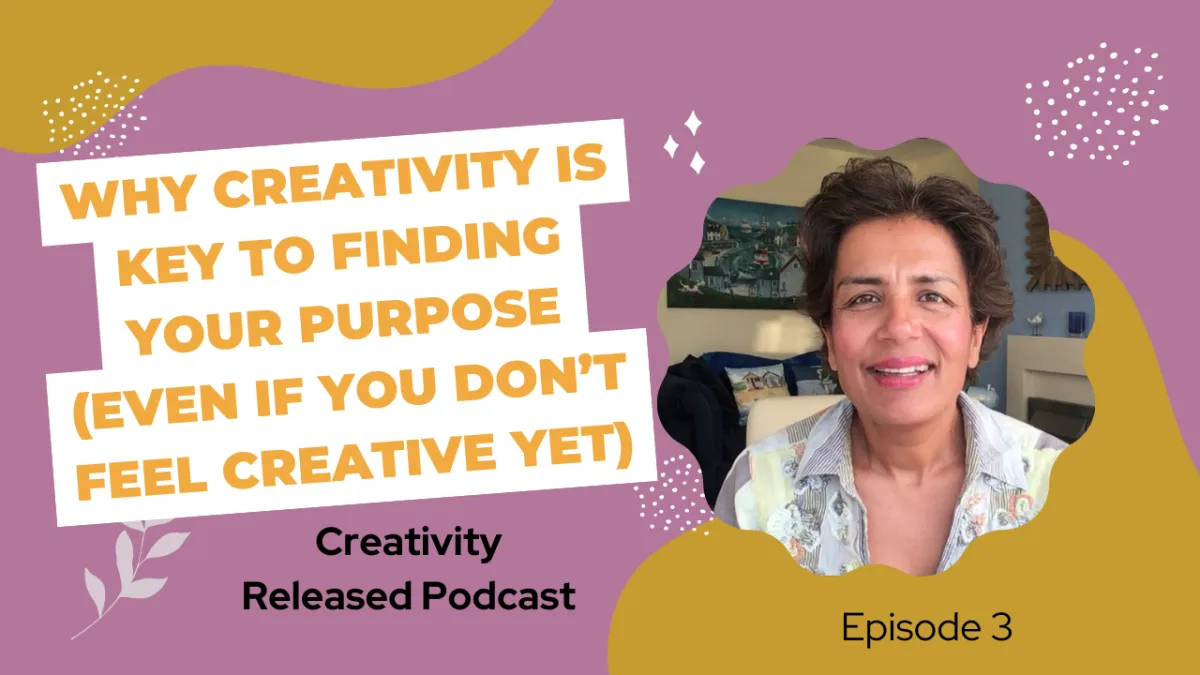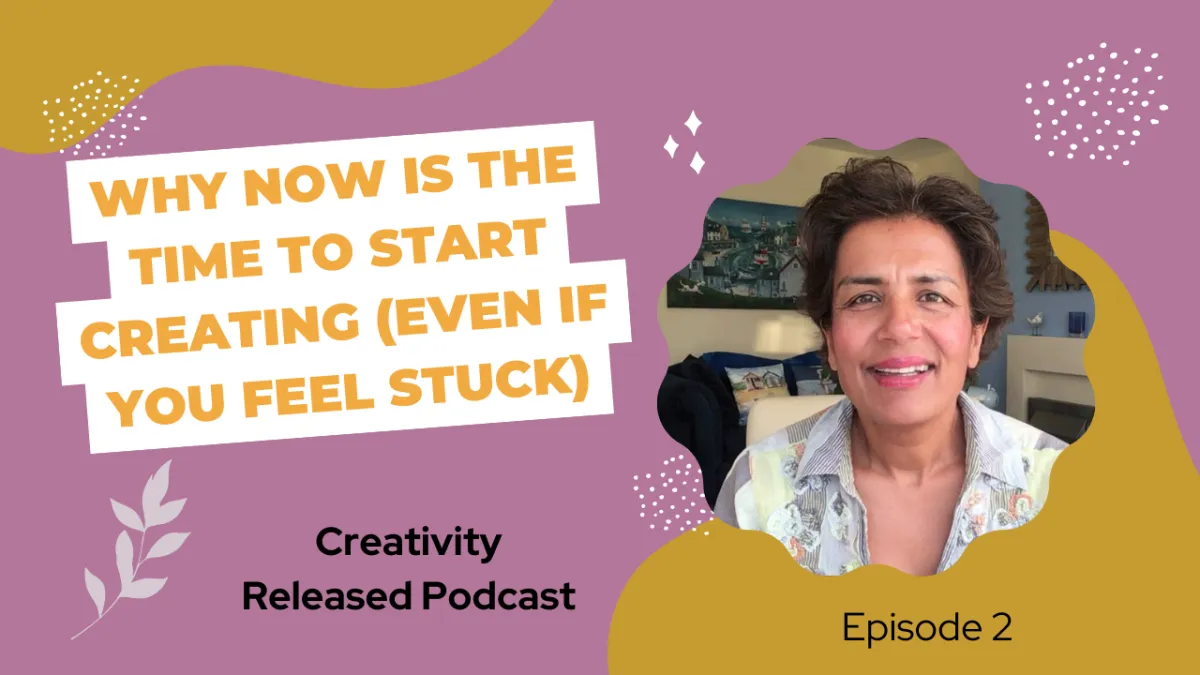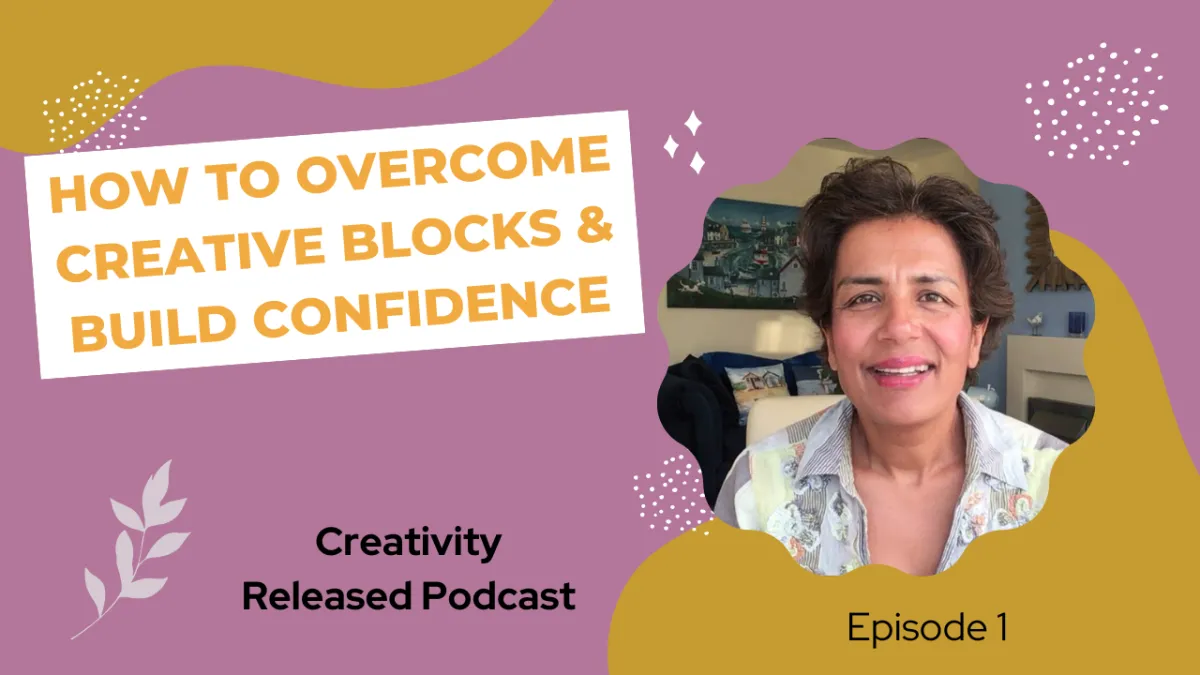


A New Way to Engage with Sermons When Your Brain Won’t Sit Still
Discover how I do creative sermons with teenagers in church

Is Zentangle Biblical? How God Can Meet You in a Simple Doodle
Discover how simple doodling—like Zentangle—can become prayer. Bev Jessup shares scripture, journaling tips, and creative ways to draw closer to God.

I Failed Art at 15… But God Had Other Plans
When I was 15, I failed my Art O-Level. I poured myself into an abstract piece and came out with a D. In my culture, art wasn’t even seen as a valid subject — so that grade stung even more.

The Power of Co-Creating: From 30 Postcards to a Deeper Walk With God
Have you ever sat down to create and found yourself staring at the page, feeling like it’s just you, your art supplies, and the silence? Creativity can feel lonely sometimes.
But recently I discovered something that changed everything: the power of co-creating.. READ MORE

Meeting God in the Messy Middle
If your quiet time feels messy or imperfect, you're not alone — and maybe you're doing it right. 💛 Join me as I share how creativity and connection with God can meet in the everyday.

From Regret to Renewal: Frances’ Creative Faith Journey
Do you ever find yourself saying, “I’m not creative” or “I could never do art journaling”? In this inspiring episode, I sit down with Frances — a member of the Creative Sanctuary — who proves that creativity is not just for the “artistic,” but for every single one of us.

When God Gives You a Dream: How to Move from Vision to Action
Wondering what to do when God places a dream on your heart? Discover how to turn your God-given vision into a meaningful reality with practical steps, biblical truth, and creative encouragement.

Struggling with Christian Identity?
Still blooming, not behind. Embrace your God-given identity and let go of comparison—God made you uniquely on purpose...watch me paint and talk about why we shoudln't compare ourselves to others.

What does God say about Gold
Learn how God talks about gold in the bible and how we used it in out art

When Mental Health Hits Home:
5 Biblical Shifts for the Woman Who's Holding It All Together
Mental health affects 1 in 4 people every year.
It affects pastors. Mums. Teens. Caregivers. Kids.

Money, Mindset & God’s Calling — For Such a Time as This
Discover how Christian creatives can overcome money mindset blocks and step boldly into their God-given calling—without guilt or fear.

When You Don’t Know What You’re Making (But God Does)
Discover how I created a faith-filled mixed media collage with Gelli prints, watercolours, and Scripture—plus a step-by-step creative process.

Journaling with Jesus: My Lifeline to Peace, Purpose, and Presence
Feeling spiritually dry or emotionally overwhelmed? Discover how journaling with Jesus can become your lifeline to peace, clarity, and deeper connection.

Sneak Peak into my Craft Room
Take a peek inside my faith-filled craft room—where prayer, paint, and creativity meet. 🎨✨
See how I store my journals, repurpose old supplies, and create space to meet with God.
It’s raw, real, and packed with ideas for your own sacred creative space.

How to Create a Sacred Space at Home (Even If All You Have Is a Box or a Bag!)
What if your sacred space with God didn’t need a studio or a perfectly lit corner… but could start with a shoebox or a bag?
In this heartfelt blog, I share how creativity helped me process grief, connect with God, and find peace—even in the middle of everyday chaos.

Feeling Spiritually Dry? 3 Creative Ways to Reconnect with God
Feeling spiritually dry? Discover 3 creative, Spirit-led ways to reconnect with God through journaling, sketching, and inspired art. No perfection needed—just presence. Dive in for encouragement, Scripture, and simple practices to renew your faith.

From Hustle to Holy Alignment: Lisa Stoops on Building a Faith-Led Business That Works
In this episode of the Creativity Released podcast, I had the honour of interviewing Lisa Stoops—founder of the Faith PLR Content Club and a powerful voice for Christian women in business. Lisa’s story is one of bold surrender, obedience, and strategic stewardship. If you’ve ever wondered whether you can...

The Oil, the Vessel, and the Cracks: Becoming a Healing Pour in God’s Hands
In this episode you will see me create a piece of art after a quiet time with God inspired me this week. Let's journal together...prompts included

When You Skip Quiet Time With God (and How Art Journaling Can Gently Lead You Back)
Discover how skipping quiet time impacted me—and how art journaling helped me reconnect with God in a simple, powerful way.

How Your S.H.A.P.E. Unlocks God-Given Creativity
Are you ready to explore how your unique design—your passions, personality, and even your past—can fuel a creative life that honours God and brings peace to your soul?
In this episode of Creativity Released, we’re diving into Rick Warren’s powerful
S.H.A.P.E.framework

Born for Such a Time as This: Understanding Purpose, Calling, and Assignment
Discover the difference between purpose, calling, and assignment. You were born for such a time as this — and God has shaped you perfectly for your season!

Is It Biblical to Monetise Your Creativity? A Faith-Based Mindset Shift for Christian Creatives
Struggling with guilt about selling your creative work as a Christian? This blog shares a biblical perspective and a gentle mindset shift to help you honour God through your art while serving others with purpose.

How to Run Your Own Creative Workshop (Even if You’re Not an Expert)
Last weekend, I ran my first daytime creative workshop at the local library—and honestly, it filled my heart.

From Overwhelmed to Aligned: Letting God Lead My Business
A heartfelt podcast for Christian creatives seeking peace, purpose, and alignment by letting God lead their business and life—one faithful step at a time.

How I Use AI to Turn Poems Into Art (And You Can Too – Even If You’re Not “Techy”)
Learn how to co-create with AI and Canva to turn poetry into visual art—no tech fear required!

When Doubt Whispers, But Purpose Calls
What happens when fear parks beside you at an art show — and how faith gently invites you to step out of the car and shine anyway.

Turning Ideas Into Action: How to Plan and Start Your Creative Business
Learn how to turn your creative ideas into a simple, soul-led business with practical steps, encouragement, and a dose of purpose-filled inspiration.

Why Creativity Is Key to Finding Your Purpose (Even If You Don’t Feel Creative Yet)
Feel stuck in life or unsure of your next step? Creativity might be the missing link. In this episode, I share how simple creative habits can help you find your purpose and bring more peace, joy, and clarity—no art skills required!

Why Now Is the Time to Start Creating (Even If You Feel Stuck)
Feeling creatively stuck? Wondering if it’s too late to start? You’re not alone. In this episode of Creativity Released, we’re diving into how to break through creative blocks, overcome fear, and take that first small step toward creativity—whether that’s journaling, painting, writing, or building something new. READ MORE

Creativity is in You – Even if You Think You’re Not Creative
Welcome to the first episode of my brand new podcast ~ Creativity Released. Ready to unlock your creativity and turn your ideas into a purpose-driven business? Start here! READ MORE

Burnout to Breakthrough: Unlock Confidence and Joy with Jen Silbert
Join me for a heartfelt chat with Jen Silbert, a confidence and emotional intelligence coach. Hear how she transformed stress into growth, overcame self-doubt, and found peace beyond perfectionism! READ MORE

Creating Courses Made Easy: My Love for Easy Peasy Funnels
Discover how Easy Peasy Funnels simplifies course creation and why it's my favourite platform! READ MORE

From Council House to Speech Therapy: Overcoming Impostor Syndrome with Research Insights
As a speech therapist who grew up in a council house, I’ve encountered this internal struggle firsthand. This blog will delve into the psychological underpinnings of

Nurturing God-Given Dreams: Wisdom for Speech Therapists from Alma Thomas
Empower your speech therapy practice with insights from Alma Thomas. Learn to overcome obstacles, nurture dreams, and write your impactful book.

Exploring Creativity and Faith: An Interview with Meghan Rae
Meghan Rae is a passionate artist and storyteller whose journey of faith and healing has inspired many. Since 2014, she's been sharing her personal experiences and artwork, encouraging others to find light in dark places and reconnect with their God-given identity.

Level Up Your Productivity: Unveiling Elisa's One Life System in Notion
This blog post is based on the "Women in Action" podcast episode featuring Elisa, a Christian entrepreneur who uses Notion to manage her work and personal life. READ MORE
Hi, I'm Bev
Hey there, I’m Bev Jessup. After over 30 years as a speech therapist helping people find their voice, I’ve discovered a deeper calling: helping people who feel lost or stuck rediscover theirpurpose through creativity.
In a world that often feels overwhelming and broken, I believe creativity is a powerful way to
heal, find clarity, and reconnect with who we’re truly meant to be. Whether through art journaling, storytelling, or mixed media, I guide people to unlock their creativity—not for perfection, but for peace, purpose, and freedom.
When I’m not leading creative workshops or hosting art journaling retreats, you’ll find me enjoying life with my husband and three grown sons, or planning my next travel adventure (I’ve always had a bit of wanderlust!).
My mission? To create safe, welcoming spaces where you can explore your creative side, reconnect with your story, and find purpose—even if you’re not sure where to start. Because I believe everyone has creativity inside them, and it’s time to release it.
Ready to join me on this journey? Let’s create something beautiful—together.

Hi there, I'm Bev Jessup

Bev was brought up in a Catholic home, where her parents instilled in her a deep faith and reverence for God. Growing up, she attended church regularly and participated in various religious activities. However, when she went to university, her world was turned upside down. Her friends started talking about having a personal relationship with Jesus, and Bev was confused. She had never heard of such a thing, and she didn't know what it meant.
Determined to find answers, Bev began to explore the Christian faith further. She read books, attended Bible studies, and talked to her friends about their experiences. Eventually, she came to understand what it meant to have a personal relationship with Jesus, and she made a commitment to follow Him.
This decision changed Bev's life forever. She experienced a sense of peace and purpose that she had never felt before. She began to see the world through a new lens, one that was filled with hope and joy.
As she continued to grow in her faith, Bev met her future husband at university, and they fell in love. They got married in 1992 and started a family. Bev and her husband have three adorable sons, whom they love and cherish.

Today, Bev and her family live on the Isle of Wight in the UK. She spends her days painting, journaling, spending time with family, walking, and traveling. But above all else, she continues to follow Jesus and share His love with those around her.
Bev's story is one of courage and determination. Despite the confusion and uncertainty she faced, she never gave up on her search for truth. And when she found it, she embraced it with all her heart. Her commitment to Jesus has transformed her life and the lives of those around her.
My mission is to empower women to embrace their creativity and use it as a tool for spiritual and personal growth. Through my work, I aim to inspire women to discover their true potential and overcome any challenges they may face on their journey.

PRIVACY POLICY TERMS OF SERVICES CONTACT US
cancel membership
Christian Art Journaling © 2025 Inspiring Christian Creatives from Around the World
THIS SITE IS NOT A PART OF THE FACEBOOK™ WEBSITE OR FACEBOOK™ INC. ADDITIONALLY, THIS SITE IS NOT ENDORSED BY FACEBOOK™ IN ANY WAY. FACEBOOK™ IS A TRADEMARK OF FACEBOOK™, INC.



